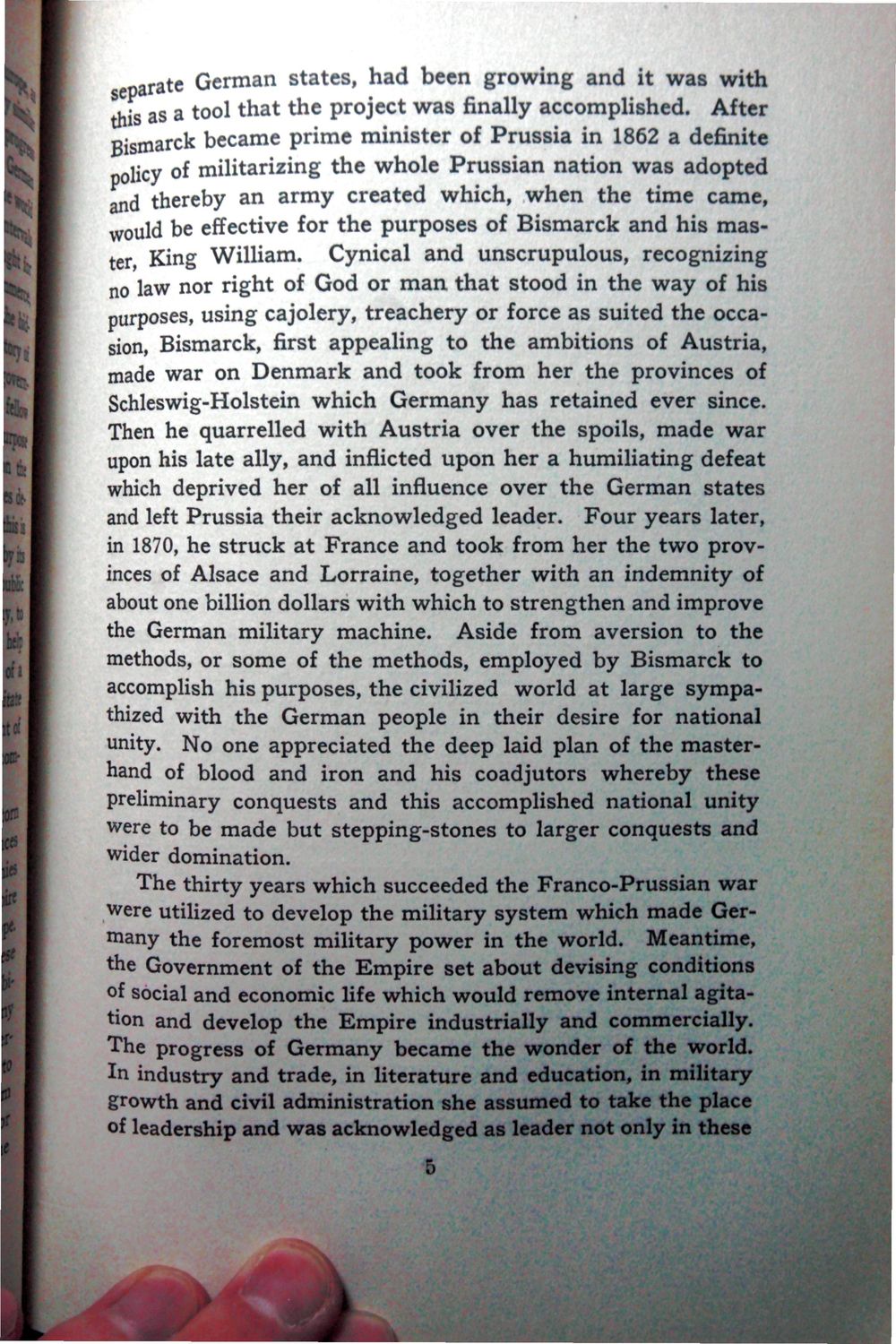| |
| |
Caption: War Publications - WWI Compilation 1923 - Article 25
This is a reduced-resolution page image for fast online browsing.

EXTRACTED TEXT FROM PAGE:
fc * I • it it 5 fcft* i JOB- lit separate German states, had been growing and it was with this as a tool that the project was finally accomplished. After Bismarck became prime minister of Prussia in 1862 a definite of militarizing the whole Prussian nation was adopted policy and thereby an army created which, when the time came, would be effective for the purposes of Bismarck and his master King William. Cynical and unscrupulous, recognizing no law nor right of God or m a n that stood in the way of his purposes, using cajolery, treachery or force as suited the occasion, Bismarck, first appealing to the ambitions of Austria, made war on Denmark and took from her the provinces of Schleswig-Holstein which Germany has retained ever since. Then he quarrelled with Austria over the spoils, made war upon his late ally, and inflicted upon her a humiliating defeat which deprived her of all influence over the German states and left Prussia their acknowledged leader. Four years later, in 1870, he struck at France and took from her the two provinces of Alsace and Lorraine, together with an indemnity of about one billion dollars with which to strengthen and improve the German military machine. Aside from aversion to the methods, or some of the methods, employed by Bismarck to accomplish his purposes, the civilized world at large sympathized with the German people in their desire for national unity. No one appreciated the deep laid plan of the masterhand of blood and iron and his coadjutors whereby these preliminary conquests and this accomplished national unity were to be made but stepping-stones to larger conquests and wider domination. The thirty years which succeeded the Franco-Prussian war were utilized to develop the military system which made Germany the foremost military power in the world. Meantime, the Government of the Empire set about devising conditions of social and economic life which would remove internal agitation and develop the Empire industrially and commercially. The progress of Germany became the wonder of the world. In industry and trade, in literature and education, in military growth and civil administration she assumed to take the place of leadership and was acknowledged as leader not only in these 5 I* A 4 • ^ k
| |